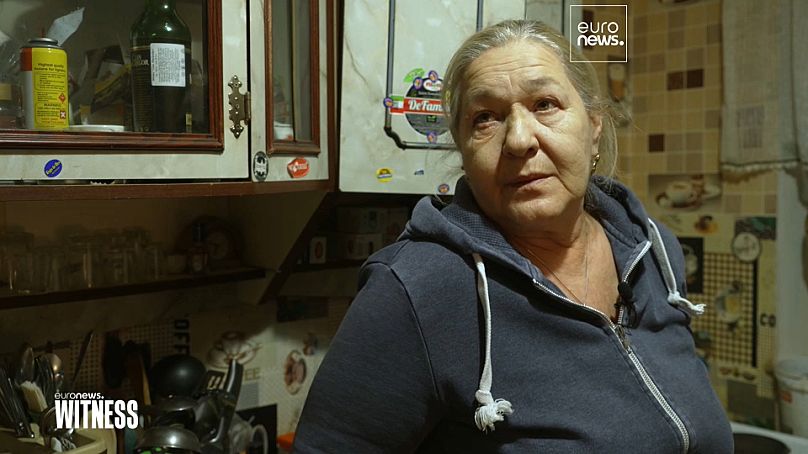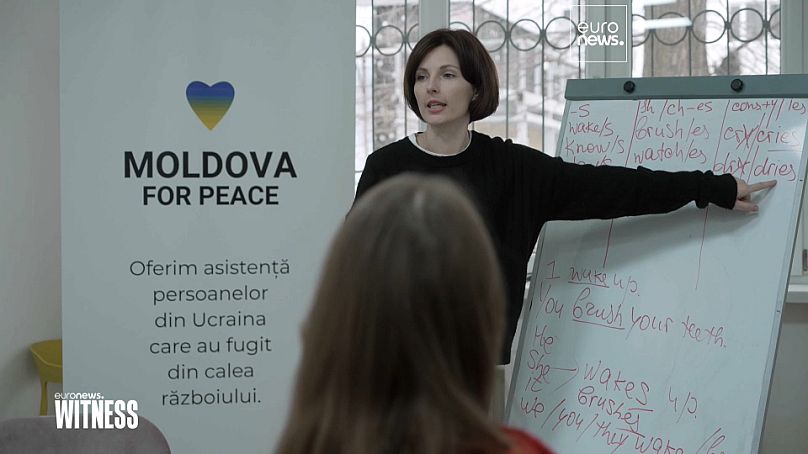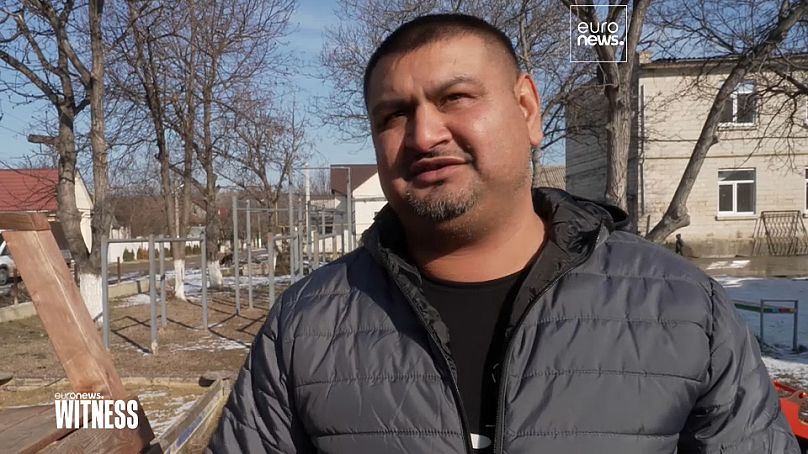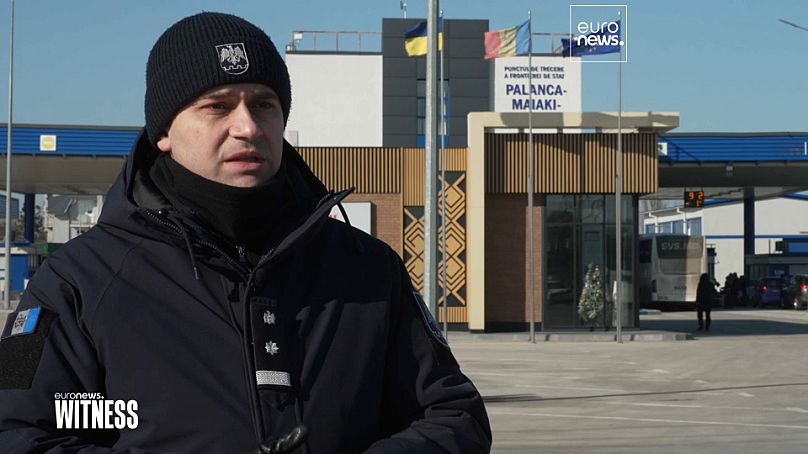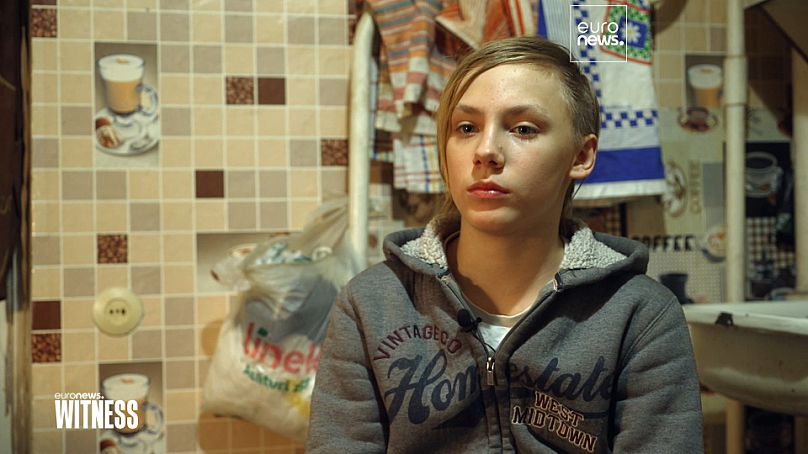Since Russia's invasion of Ukraine one year ago, Moldova has welcomed around 100,000 Ukrainian refugees. Euronews reporter Bryan Carter went to see what life has been like for those fleeing conflict.
Landlocked between Romania and Ukraine, Moldova is one of the poorest and smallest countries in Europe, with a population of approximately 2.5 million people.
 ADVERTISEMENT
ADVERTISEMENT
 ADVERTISEMENT
ADVERTISEMENT
Yet this hasn’t stopped the aspiring EU member from welcoming around 100,000 Ukrainian refugees - many of whom are women and children - since the start of Russia's full-scale invasion of Ukraine one year ago.
Svetlana Berezovskaya is from Moldova. She is housing a mother and her two sons who fled the war in Ukraine. She says the conflict next door made her reflect on the vulnerability of her own country.
"I was here in Moldova when the war with Transnistria started. I know what it is, it's scary. And when you have children, it is very scary. So you have to help somehow," she explained.
"I don’t know, maybe, God forbid, of course, that such things should happen to us… It's scary. And when you have children, it is very scary. So you have to help somehow."
Mobilising civil society
Since the start of the war in Ukraine, Moldova has lived under the constant fear of a Russian attack on its soil and has suffered from major energy and cost of living crises, leading to the resignation of pro-Western Prime Minister Natalia Gavrilita earlier this month and growing instability in the country.
There are a number of pro-Russian groups in Moldova, particularly in Transnistria, an eastern separatist region. This, along with a severe cost of living crisis, has contributed to instability in the country and the resignation of pro-Western Prime Minister Natalia Gavrilita earlier this month.
Despite these hardships, civil society mobilised in an unprecedented way to help refugees.
A year ago, Moldova For Peace started with just a handful of volunteers. Today, this NGO is backed by several international organisations and employs more than 100 people.
"The war started, we all woke up in a huge anxiety [...] And we decided that the least that we can do is come together [...] and try to offer the support we can," said Constanta Dohotaru, the Program Coordinator of Moldova for Peace.
"This is a safe space for women and girls. It's a space where people, can have a psychotherapy session, can ask for legal advice, take part in Romanian lessons, English lessons," she added.
Jennifer Perova is a Ukranian employed by Moldova for Peace. She told Euronews that the support she received inspired her to help others.
"I was impressed by how sincerely people want to help others. That is why, as soon as I arrived in Moldova, I started looking for some options where I could help others as well."
Ukraine's Roma refugees
Before the war, an estimated 400,000 Roma lived in Ukraine. It’s unclear how many have fled to Moldova, but most of them who did are staying in refugee accommodation centres scattered across the country.
In Costesti, a village 20 kilometres south of the capital, Euronews met with Iduard Mihay and his family at a refugee centre run by the local municipality.
Iduard says his family hasn’t experienced any sort of discrimination, and that the welcome they received in Moldova helped to overcome the traumatic experience they went through in Ukraine.
"We left because there were already rockets flying over our heads, there was no light at all. It was cold, and we also have a well, which had no water, and there was no heat and it was cold," he said.
"So we decided to take my children and come here. Everyone helps us here, there are many good people. Everyone helps with clothes, food, with everything."
Palanca: The primary border crossing
The village of Palanca on the Ukrainian border is less than an hour's drive from the city of Odesa and has been the main crossing point for the 750,000 refugees who have fled the war through Moldova.
Today, the relative peace stands in stark contrast with the events that unfolded here a year ago.
"At the height of the crisis, the queue to get to this border crossing point would be around eight to eleven kilometres [long]," revealed Eugen Levco, Head of international cooperation at Moldova border police.
"I myself am a father. I have a small daughter. And when you [live] these experiences, you take it very personally," he added.
Holding out for the day they can go home
In January 2023, the Moldovan government granted temporary protection status to all Ukrainian refugees, to ensure a more stable future for them, with automatic rights to housing, healthcare, education and work.
But despite this guarantee, most are dreaming of home.
"I want to go back," said Dimitro Kochegov, a young Ukrainian refugee who lives with Svetlana Berezovskaya. "But I realise that it's very dangerous there, something can happen."
"God willing, everything will be over fast," Iduard Mihay told Euronews. "Our parents, our houses are there, everything is there. So, we will wait. It's just a matter of time," he concluded.











